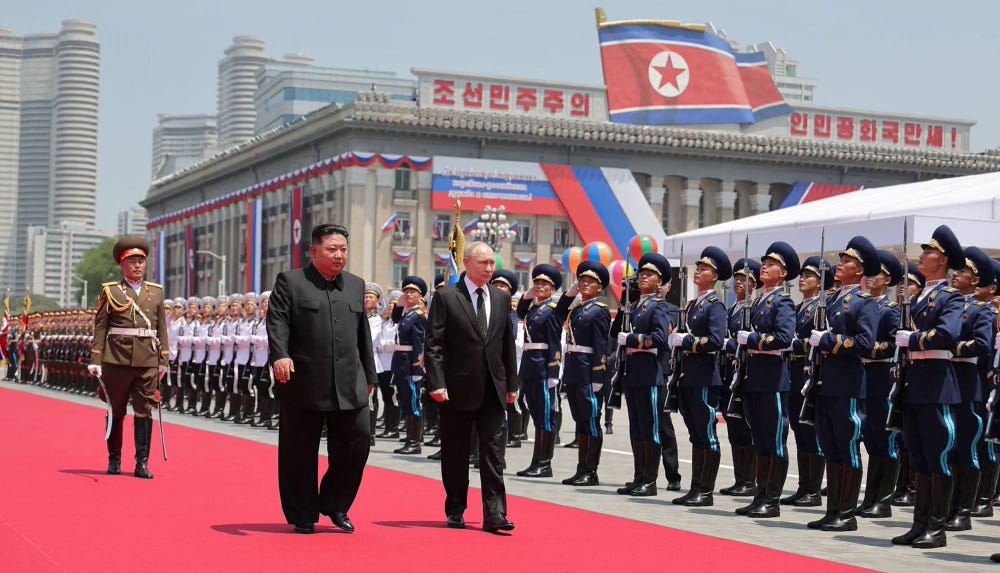North Korea’s Entry into the Ukraine War
An assessment of the tactical, strategic and political implications and the trajectory of the war.
It has become increasingly likely that North Korean combat troops will appear in Ukraine soon. According to Ukrainian and South Korean government sources, around 1500 North Korean special operations troops are currently preparing in Russia to deploy to Ukraine.
On 13 October, President Zelenskyy announced the anticipated deployment of North Korea troops to Ukraine. In the past 48 hours, the head of NATO, Mark Rutte, described how “North Korea sending troops to fight alongside Russia in Ukraine would mark a significant escalation.”
While there remain many unknowns on this subject, the deployment of North Korean troops raises many different potential issues for Russia, Ukraine and NATO.
Challenges and Opportunities for Russia
The first issue for the Russians will be how and where to deploy the North Koreans. How will Russia employ them - on the battlefield, or along border, in rear areas for security, occupation duties and that then allows Russian troops to be released and sent to front line?
If the North Koreans are to be employed in combat operations, which looks increasingly possible, there are numerous challenges.
The most obvious challenge for Russia in the deployment of North Korean troops for combat operations will be at the tactical level. There will be a communication gap between soldiers and commanders who speak two different languages. It is very unlikely that most North Korean troops speak Russian - and vice versa. While translators will be helpful, this kind of communication gap can, and will, be a problem during combat operations.
Also at the tactical level, how will North Korean tactical training and doctrine mesh with Russian tactics. This will be an issue in the Russian Brigade the North Koreans are allocated to, particularly in building combined arms groups. Further, if North Koreans have to call for air support and artillery fire, language and procedural differences will be a challenge.
There will be an array of logistical challenges. Will the North Koreans use their own weapons, protective ensemble (body armour, helmets, etc) and equipment or rely on Russia to provide these? If the North Koreans are to use Russian kit, there may be a training liability. Although this is only a problem if you are a professional and care about the lives of your soldiers. The Russians – not so much. And of course, there will be the ongoing issue of transporting North Korean soldiers to the Ukrainian theatre. This is thousands of kilometres from the Korean peninsula and may be an ongoing liability for Russia.
Finally, the status of command of the North Koreans will be interesting. Will they operate fully integrated within Russian formations and be subject to the full command of Russian commanders? Or will they be under a form of operational command or control with caveats on their employment, such as not being used as meat troops? The initial employment of North Koreans will provide insights into this issue of command and control.
Keep reading with a 7-day free trial
Subscribe to Futura Doctrina to keep reading this post and get 7 days of free access to the full post archives.




